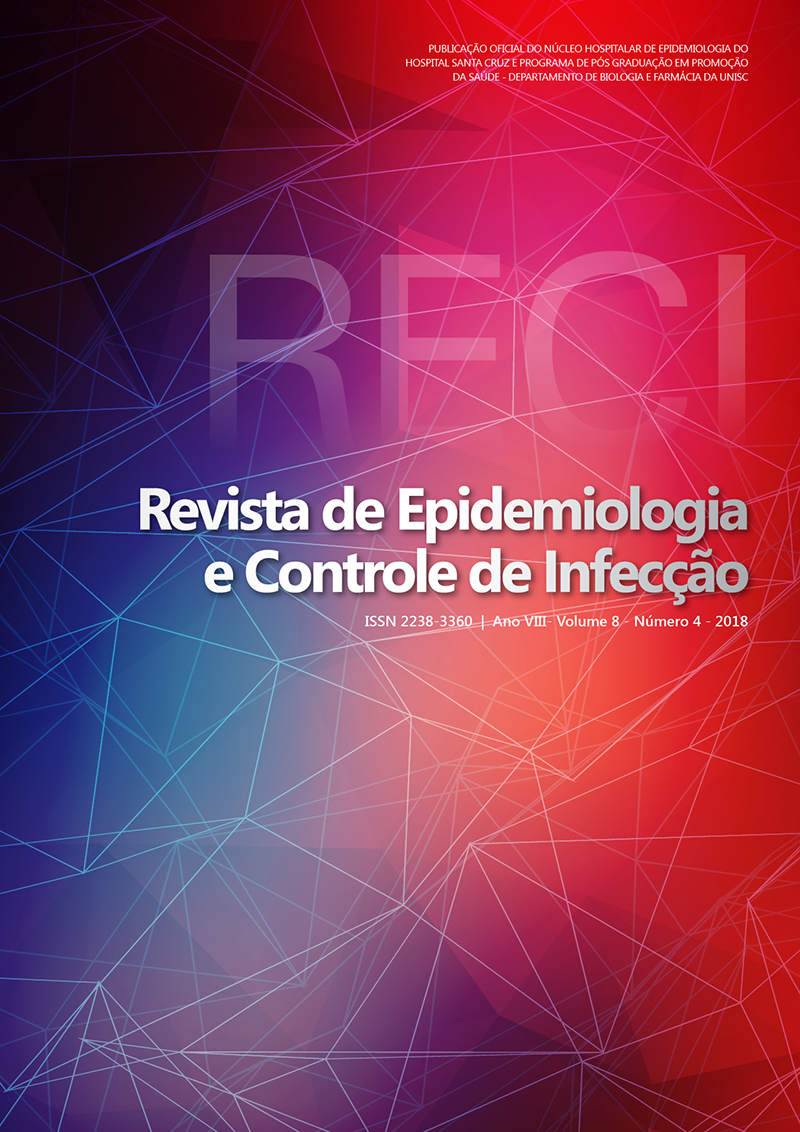Hungal arthroplasty in hospitalized elderly people and the use of antibioticoprofilaxia
DOI:
https://doi.org/10.17058/reci.v8i4.11870Abstract
Background and objectives: Population aging increases the risk of hip fractures and postoperative complications arising from surgeries, which may lead to morbidity and rehospitalization of these patients. Recommendations are aimed at guiding professionals in relation to the necessary care so that infections of surgical sites (ISC) can be avoided or minimized. Thus, the study aimed to describe the epidemiological and clinical profile of elderly hospitalized for hip arthroplasty and to verify the adherence to protocols of antibiotic prophylaxis in hip surgeries. Methods: A retrospective cross-sectional study, carried out in a teaching hospital. Secondary data were collected from the medical records of elderly patients 2 submitted to hip surgery during the year 2016. Results: There were 203 hip arthroplasties in he elderly, 57.6% were women, mean age 73.2 ± 8.1 years. Lacto-femoral total arthroplasty was performed in 32% of the patients, the mean intention was 8 ± 8.7 days, and 94.1% were hospital discharge. Cefazolin 1 g 6 / 6h were the most used antibiotic 73.4% on average the ATB was used for 65.52 hrs. The SSI rate was 0.99% and adherence to the dosage, dose and antibiotic duration according to the institutional protocols occurred in 16.2%, 13.7% and 8.6% respectively. Conclusion: The postoperative infection rate related to hip prosthesis surgeries was low, despite inadequate adherence to the protocols of surgical antibiotic prophylaxis. However, it should be considered that the dose of antibiotic administered prior to the start of surgery was not evaluated, due to the lack of information in the medical record.Downloads
Downloads
Published
How to Cite
Issue
Section
License
The author must state that the paper is original (has not been published previously), not infringing any copyright or other ownership right involving third parties. Once the paper is submitted, the Journal reserves the right to make normative changes, such as spelling and grammar, in order to maintain the language standard, but respecting the author’s style. The published papers become ownership of RECI, considering that all the opinions expressed by the authors are their responsibility. Because we are an open access journal, we allow free use of articles in educational and scientific applications provided the source is cited under the Creative Commons CC-BY license.


